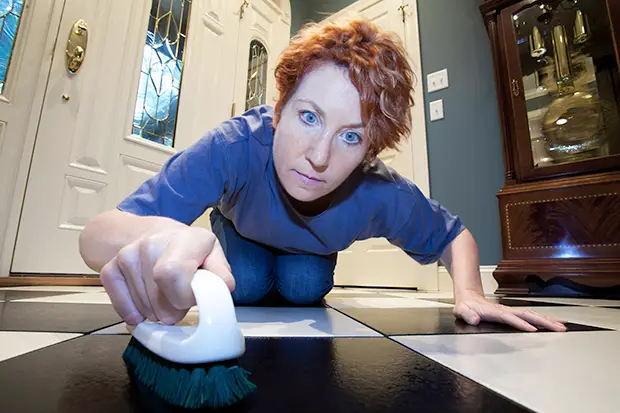
Submitted by Anjum Bashir, MD
“I couldn’t do anything without rituals. They invaded every aspect of my life. Getting dressed in the morning was tough, because I had a routine, and if I didn’t follow the routine, I’d get anxious and would have to get dressed again. I always worried that if I didn’t do something, my parents were going to die. That was completely irrational, but the thoughts triggered more anxiety and more senseless behavior. Because of the time I spent on rituals, I was unable to do a lot of things that were important to me. I knew the rituals didn’t make sense, and I was deeply ashamed of them, but I couldn’t seem to overcome them until I had therapy.”
People with obsessive-compulsive disorder (OCD) have persistent, upsetting thoughts (obsessions) and use rituals (compulsions) to control the anxiety these thoughts produce. Most of the time, the rituals end up controlling them. For example, if people are obsessed with germs or dirt, they may develop a compulsion to wash their hands over and over again. If they develop an obsession with intruders, they may lock and relock their doors many times before going to bed.
Some common obsessions include having frequent thoughts of violence and harming loved ones, or having thoughts that are prohibited by religious beliefs. People with OCD may also be preoccupied with order and symmetry, have difficulty throwing things out (so they accumulate), or hoard unneeded items. Other common rituals are a need to repeatedly check things, touch things (especially in a particular sequence), or count things. Performing such rituals is not pleasurable. At best, it produces temporary relief from the anxiety created by obsessive thoughts.
Healthy people also have rituals, such as checking to see if the stove is off several times before leaving the house. The difference is that people with OCD perform their rituals even though doing so interferes with daily life and they find the repetition distressing. Although most adults with OCD recognize that what they are doing is senseless, some adults and most children may not realize that their behavior is out of the ordinary.
OCD affects about 2.2 million American adults, and the problem can be accompanied by eating disorders, other anxiety disorders, or depression. It strikes men and women in roughly equal numbers and usually appears in childhood, adolescence, or early adulthood.
The course of the disease is quite varied. Symptoms may come and go, ease over time, or get worse. If OCD becomes severe, it can keep a person from working or carrying out normal responsibilities at home. People with OCD may try to help themselves by avoiding situations that trigger their obsessions, or they may use alcohol or drugs to calm themselves.
OCD usually responds well to treatment with certain medications and/or exposure-based psychotherapy, in which people face situations that cause fear or anxiety and become less sensitive to them. Newer treatment approaches may be used for people whose OCD does not respond well to the usual therapies. These approaches include combination treatments, as well as techniques, such as deep brain stimulation. Stress management techniques and meditation can help people with anxiety disorders calm themselves and may enhance the effects of therapy.
If you or a loved one has symptoms of OCD, you should first see your family doctor who can rule out other medical conditions that may be causing the symptoms. The next step is to seek out a psychiatrist who is experienced in diagnosing and treating anxiety disorders. You should feel comfortable talking to the psychiatrist you choose and work as a team to overcome the disorder.
The family is very important in the recovery of a person with OCD. Family members should not trivialize the disorder or demand improvement without treatment, but should become educated about the disease so that they can be supportive but not make it easy for the person’s symptoms to continue.
For more information on mental illness, TMS Therapy for depression, or Quotient Testing for ADHD diagnosis, please contact Anjum Bashir, MD at 217-422-0027. He is one of the few physicians in Central Illinois offering TMS Therapy and Quotient Testing. His Bloomington office is located at 205 N. Williamsburg, Suite D and he also has an office in Decatur. TMS therapy is covered by many insurance companies including BCBS.
Photo credit: karenfoleyphotography/iStock

